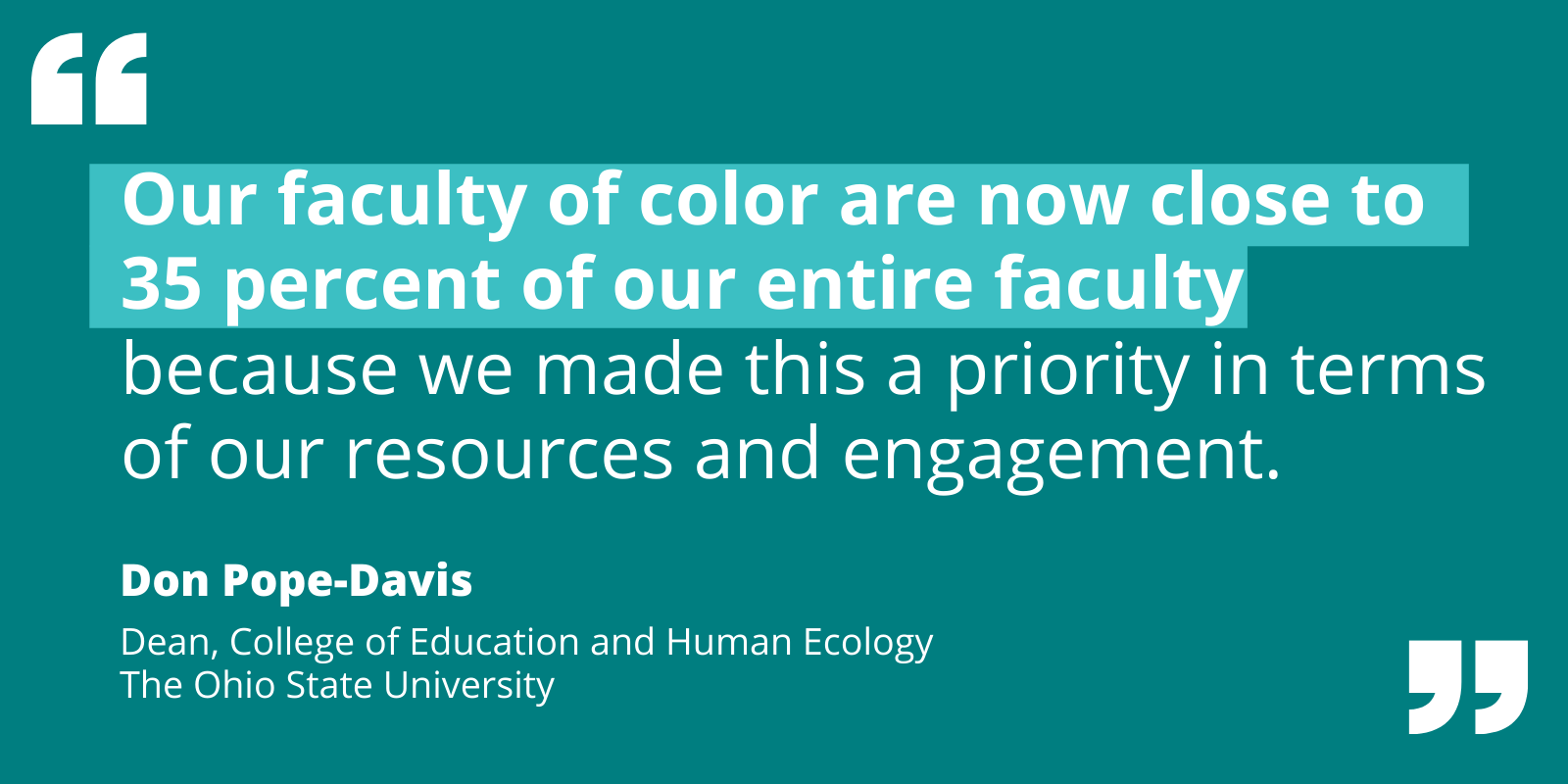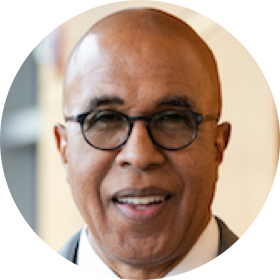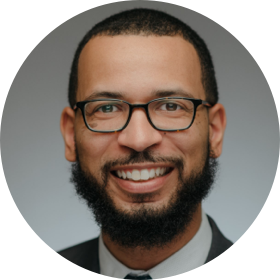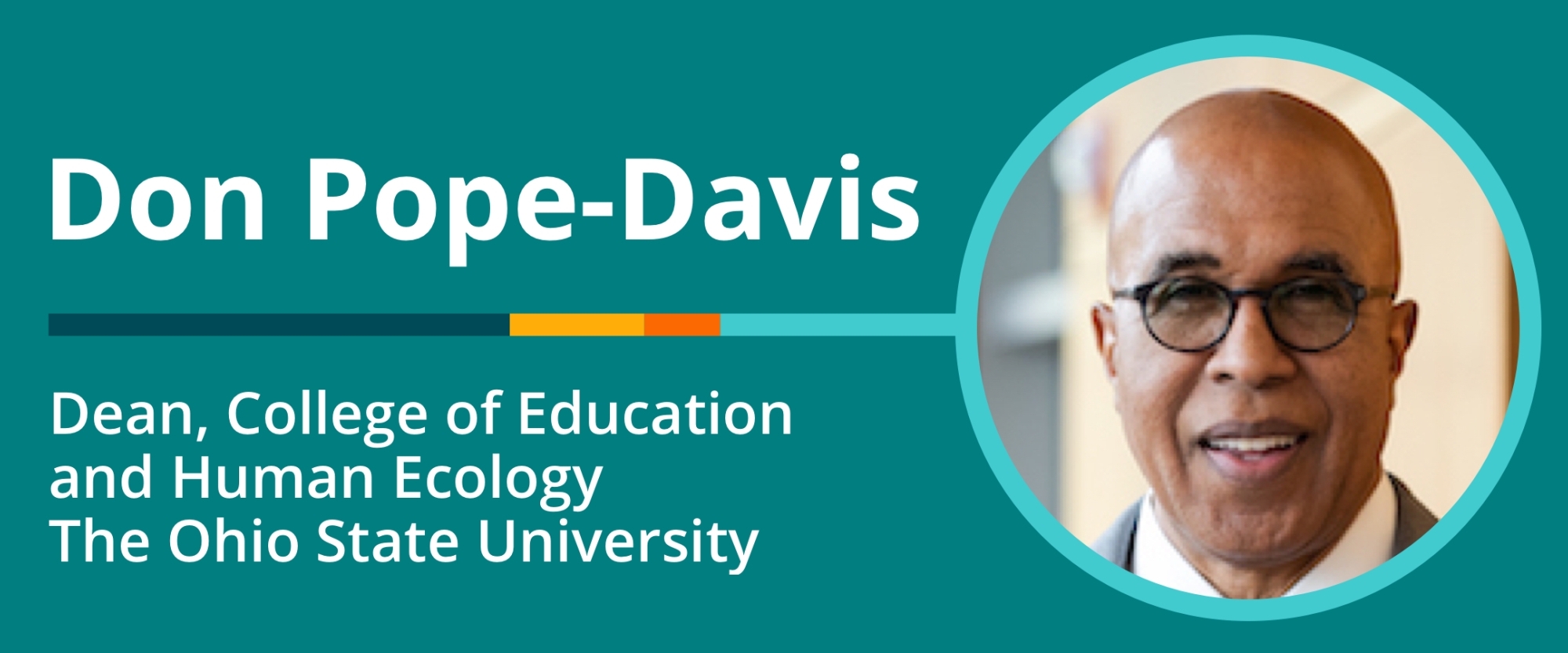We had an inspiring conversation with Dr. Don Pope-Davis, Dean of the College of Education and Human Ecology at The Ohio State University, for the Scholarship to Practice Podcast. He told us about the Dean’s Diversity Postdoctoral Fellows Program, the thinking and groundwork that led to its development, and what it takes for a campus culture to be ready for any large-scale diversity initiative.
Diversity Hiring, Diversity Retention
We asked Dr. Pope-Davis to describe his Dean’s Diversity Postdoctoral Fellows Program.
"The idea came from a series of conversations with colleagues about recruiting faculty of color to their various institutions or programs," he began, "and not having the success they wanted, or having individuals that they’ve recruited decide to leave. The complexity of those issues encouraged me to have conversations with people who were actually in those roles, who had been at those institutions, who had tried to make those environments work. One of the things at the top of the list was many of these institutions that were attempting to diversify continued to use the same methods without taking into account the barriers inherent in their systems. I looked at the environmental circumstances and culture of these institutions that prevented people from staying or wanting to come in. Talking with students, postdocs, people in faculty roles, I said, 'Why did you leave those institutions? What was it about them that didn’t encourage you to stay?' So I gathered a list as a basis to talk about these issues, because I want to be solution-based rather than problem-based. I wanted to do something much more creative and engaging.
"It may have helped that I’m a psychologist," Dr. Pope-Davis added, "so my worldview is a little different. I like to disrupt the way of thinking about these problems, because if you don’t, you should expect the same outcomes. That was my approach in terms of how do we apply this, but being informed by practice and real-life experiences of other colleagues, in order to build on a model that is working for us."
Build the Culture First
Dr. Pope-Davis discussed why diversity-hiring initiatives often fail. "When you say you are committed to diversity and inclusion," he explained, "institutions need to recognize that they are overtly saying, 'We are prepared to change the climate and the environment in which we work.' I don’t think many institutions understand the nature of that commitment, because it makes P.R. sense to say, 'We’re going to diversify' and then leave it to someone else."
Ohio State's model committed to hiring people into a culture rather than a job, which required building that culture first.
"We intentionally set up a model that recruited some of the best minds in the country," said Dr. Pope-Davis. "We wanted to have a representation consistent with our values so that, when started a Diversity Postdoc Program, the scholars would walk into a space and go, 'Wow, I’m not alone. I’m not the only one in this place.' More importantly, they were able to see full professors, tenured professors, administrators, who look like them; and could say, 'This is a place where I am represented.' We are continuing to recruit senior distinguished faculty. While the focus is on our Diversity Postdoc, our faculty of color are now close to 35 percent of our entire faculty, in a period of three to four years, because we made this a priority in terms of our resources and engagement. When the postdocs arrived, we had developed a program. My colleague Noelle Arnold helped facilitate a variety of professional-development opportunities for our postdocs."

The program doesn't end with hiring. Dr. Pope-Davis tells the postdocs, "If you’re going to come here, we are going to engage you daily and continuously, and we will provide you with the resources to be successful." This includes stipends and competitive salaries, mentors and collaborators, and opportunities to steer their own research. "They can take personal responsibility for their scholarship," he said. "We assisted them with resources in grant writing. We surrounded them with a variety of assets. Now we have an environment where it is impossible for any of our postdocs and, more importantly, for most of our students to not walk through our college and see people who look like them across the spectrum, because of that influx that we did early on in the process."
Change the Conversation
While it may seem like a straight line between commonsense ideas and a successful program, Dr. Pope-Davis admitted that there were "some hiccups" along the way.
"As you know, culture is one of the most difficult things to change," he reminded us. "People get set in a way of doing things. We provided aspects of incentive to some of our faculty, who decided to be mentors with our cohort. We included seminars and conversations as to what this means. We also encouraged people to think about what does inclusion and diversity look like. I think many people who are committed to these values make the mistake of starting the conversation with the resources rather than being ambitious and saying, 'What do we want to do? What do we want to be known for?' As you articulate that and bring different perspectives to it, if it is a great idea, people will want to help. We had to make our way through this maze of systems, programs, policies, practices, and individuals, who thought early on that the resources could be better spent somewhere else."
Dr. Pope-Davis' psychology background helped him manage these changes as well as lead the initiative.
"I generally believe that, in every institution, when you talk about systemic change, you have individuals who typically fit into four categories," he said. "One is traditionalists who say, 'We are fine the way we are. We’ve been doing this for 20 years. Why do you want to disrupt?' Then you have people who are complacent, saying, 'Yes, it’s OK, but I’m OK. Leave me alone.' Then you get people with hubris. 'We’re already a great college. Why would you want to move it in a different way?' Then you get people that say, 'I’m in, but what’s in it for me?' But the other group of people who you run into say, 'This is fantastic. I’m not sure how to do it. I’m in. I’m going to need some help.' Then you begin to have conversations with those people, so that famous phrase, the way you change the conversation is you change the people you’re talking to. I began to do that with my leadership team and people in the college who saw this as an asset and an added value in terms of elevating our college. It’s important to understand the community in which you work and how you engage people. With every new idea, you have early adopters, and then you have people who wait and see. Now that we’ve been successful, I think the majority of the college, and our leadership in particular, is 100 percent onboard with what we’re doing."
No School Too Small
As a leader at a large institution like O.S.U., Dr. Pope-Davis is aware that smaller schools might feel under-equipped to initiate their version of the Dean’s Diversity Postdoctoral Fellows Program and its underlying cultural changes. For those colleges, he offered this recommendation:
"You can develop a faculty-sharing partnership or an M.O.U. with a major university. You needn’t take the traditional approach where the person is exclusively at one institution. The other thing is, having a hard time simply because you’re small should not be an excuse. I say to those people, 'When’s the last time you’ve done a cultural assessment?' If you were to recruit someone, if your environment hasn’t changed, they’re not going to stay, no matter what the practices are. Do a cultural assessment of the environment, the attitudes of the community, and have that inform you. There are consultants who can do these things for you, if you’ve got the resources; but I always say, 'If you’ve got money for a consultant, you can do this and recruit some of the best faculty in the world.'"
He also recommends KerryAnn O'Meara's article "Nudging Toward Diversity: Applying Behavioral Design to Faculty Hiring." "It’s a fantastic article," he said, "data-driven best practices. I would encourage any administrator trying to diversify and be inclusive to read that article."
Behavior and Accountability
Dr. Pope-Davis warned about the difference between intentional and reactive cultural shifts, recalling, "The activities of last summer, the BLM movement and so forth, I would say, 'Here we go again,' because we’ve been here before, institutions’ knee-jerk reactions. 'Let’s get more people of color. Let’s get more women. Let’s do this and that.' I’m going, 'No. Stop. This is a moment to reflect on the culture of your institution, your college, your program, and ask some very fundamental questions. How do we define these concepts, relative to our experiences? What has been our behavior and practice?' I want to emphasize, start with the behavior. Not just the practice; practice is a safe place to go. Behavior requires a sense of accountability. Have I been an ally? Have I been an advocate? Have I been a traditionalist? Have I said, 'The status quo is fine; we just need to add' – all of those systemic things need to look at an individual behavior if you want to change that environment. As a dean, my commitment has been to make people accountable and create some element of what I would call dialectical tension that requires a constant engagement in this topic. Doesn’t mean we have to agree, but as long as we agree with the framework, and we say, 'These are important,' I can work with you in that."
Note: This interview in the Scholarship to Practice Series originally aired on September 16, 2021 as part of the University Innovation Alliance’s Innovating Together Podcast, appearing live on Facebook, Twitter, and LinkedIn.
Links Mentioned in This Episode
• Dr. Don Pope-Davis
• College of Education and Human Ecology
• The Ohio State University
• Dean’s Diversity Postdoctoral Fellows Program
• Noelle Arnold, Senior Associate Dean, Office of Diversity, Inclusion, and Outreach, College of Education and Human Ecology at The Ohio State University
• "Nudging Toward Diversity: Applying Behavioral Design to Faculty Hiring" (by KerryAnn O'Meara, Dawn Culpepper & Lindsey L. Templeton, Review of Educational Research, 4/8/20)
Keeping Up With Dr. Don Pope-Davis
You can find Dr. Pope-Davis on Twitter @dpd614. You can also reach out to his Chief of Staff, Dr. Nicole Luthy, at luthy.22@osu.edu or Senior Associate Dean Noelle Arnold at arnold.1040@osu.edu.
Bios of Guest Luminary and Co-Hosts

Guest Luminary: Don Pope-Davis, Dean, College of Education and Human Ecology, The Ohio State University
Don Pope-Davis (Ph.D., Stanford University) is Dean of the College of Education and Human Ecology at The Ohio State University. He is passionate about using higher education to address issues of equity, economic growth and the psychological well-being of educators and students. An educator for more than 25 years, he was previously dean of the College of Education at New Mexico State University, a Hispanic-serving institution. He also served in senior-level positions at the University of Notre Dame. Pope-Davis’ work on religious attitudes, multicultural competence, and unintentional racism in counseling is widely published in peer-reviewed journals. He is an elected Fellow of the American Psychological Association's Society for Psychological Study of Ethnic Minority Issues and a Fellow of the Society of Counseling Psychology. His most recent book, Perseverance in the Parish?, published by Cambridge University Press, examines the attitudes of Black Catholics in America. He is president-elect of the Council of Academic Deans from Research Education Institutions (CADREI), a member of the steering committee of Deans for Social Justice and Equity in Education, and past chair of the American Psychological Association’s Committee of Ethnic Minority Affairs.

Co-Host: Bridget Burns, Executive Director, University Innovation Alliance
Dr. Bridget Burns is the founding Executive Director of the University Innovation Alliance (UIA). For the past decade, she has advised university presidents, system chancellors, and state and federal policy leaders on strategies to expand access to higher education, address costs, and promote completion for students of all backgrounds. The UIA was developed during Bridget’s tenure as an American Council on Education (ACE) Fellowship at Arizona State University. She held multiple roles within the Oregon University System, including serving as Chief of Staff and Senior Policy Advisor, where she won the national award for innovation in higher education government relations. She was a National Associate for the National Center for Public Policy and Higher Education, and has served on several statewide governing boards including ones governing higher education institutions, financial aid policy, and policy areas impacting children and families.

Co-Host: Derrick Tillman-Kelly, Director, University Innovation Alliance Fellows Program and Network Engagement
Dr. Derrick L. Tillman-Kelly serves as the Director of the UIA Fellows Program and Network Engagement for the University Innovation Alliance. He previously served in multiple roles at The Ohio State University, including as the inaugural UIA Fellow and special assistant to the director of the Center for Higher Education Enterprise. Dr. Tillman-Kelly earned his Ph.D. in educational policy and leadership with a specialization in higher education and student affairs from Ohio State; a master’s degree in higher education and student affairs from Indiana University; and a bachelor’s degree from Illinois Wesleyan University.
About Scholarship to Practice
Scholarship to Practice is an event series that happens live on Facebook, Twitter, and LinkedIn. It also becomes a podcast episode. We interview higher education scholars, researchers, and academics as we surface relevant research on topics that administrators often wonder about, and examine how a practitioner or administrator could apply this learning in real-time to improve student success. At the UIA, we know that we need to bridge that gap between scholarship and practice if we’re going to stand a chance of improving student success. We all need to work together leveraging research in the field and identifying where we need more research to support greater innovation in higher ed. With its short and conversational format, this show is designed to help bridge that gap by elevating the relevant research we all could be using in our daily lives.
Rate, Review & Subscribe
Learn why hundreds of people have rated this new podcast 5 stars! Please join others and rate and review this podcast. This helps us reach and inform more people -- like you -- to help increase the number and diversity of college graduates in the United States.
Click here, scroll to the bottom, tap to rate with five stars, and select “Write a Review.” Then be sure to let us know what you loved most about the episode! Also, if you haven’t done so already, subscribe to the podcast. We’ll be adding a bunch of bonus episodes to the feed and, if you’re not subscribed, there’s a good chance you’ll miss out.

